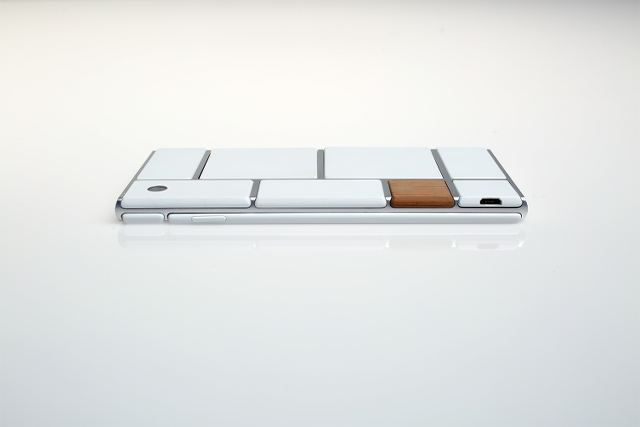
Time magazine has a great long-form read on Google’s modular smartphone initiative, Project Ara, which includes some basic release information. While the company is still toiling away at a working prototype ahead of its Ara developer conference in April, Google hopes to have handsets ready for commercial release by Q1 2015. The base model Ara smartphone will retail for $50 but contain only the most core components – which means no cellular connectivity in favour of a Wi-Fi radio.
The article is well worth a complete read to gain some insight into Google’s Advanced Technology and Projects (ATAP) group, the former Motorola division not sold to Lenovo founded by ex-DARPA employees. For the tl;dr crowd, we’ve included salient Ara information from the article after the jump.
- Project Ara supports three phone sizes: mini (for the $50 model), medium (for more mainstream smartphone users), and jumbo (think phablet). The size of each is determined by its endoskeleton, the one Ara component to be Google branded.
- Each endoskeleton is composed of aluminum and contains some networking circuitry and a back-up battery. Every other component of the phone will be modular.
- Modular components are slid into place and are currently connected via retractable pins to the endoskeleton. The commercial release will feature capacitive connections that free up more space.
- Module can be “hot-swapped”, meaning you won’t need to power down the phone to add a camera for a impromptu selfie.
To ensure that the smartphone doesn’t fall apart when it’s in your pocket, modules are secured via latches (device front) or electropermanent magnets (device back). An app is used to lock everything to the endoskeleton. - ATAP claims Ara devices will be as water resistant as current smartphones.
- Current Ara prototypes are 9.7mm thick, which is a little bit more than an iPhone 4s. Each module component is 4mm thick.
- Google is hoping use 3D printers to make Ara devices as aesthetically customizable as they are functionally.
[source]Time[/source]
MobileSyrup may earn a commission from purchases made via our links, which helps fund the journalism we provide free on our website. These links do not influence our editorial content. Support us here.


